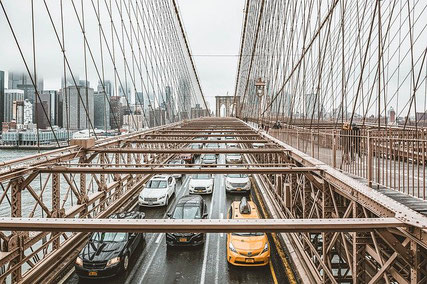
Have you ever found yourself worrying about something you’ve got to do in the near future – for example, giving an important work presentation to a large group of people – and thought: if I’m this anxious now, imagine how freaked out I’m going to be on the day itself?
Here’s the thing: the chances are, it won’t be nearly as bad as you think it will be. Now, I’m not trying to be positive or reassuring when I say that. Indeed, I’m sure everyone can remember times when they said something like “I was really nervous but it wasn’t half as bad as I thought it would be”. The key to handling anticipatory anxiety is to realise that anxiety is a great bluffer; it makes you feel that you won’t be able to handle a situation, but you can.
PANIC

On his website, American psychologist and anxiety expert Dr Martin Seif tells a great story which illustrates how anticipatory anxiety manages to mislead us. He once worked with a man who avoided driving over bridges because he was afraid that he would get stuck in traffic on the bridge. The man feared this would cause him to feel trapped and panicky and that he would respond by doing something impulsive or dangerous, such as jumping out of his car or causing a car accident.
Now, the best way to extinguish phobic fears is to expose yourself to them, so Seif and his client practised by driving over a major bridge connecting Manhattan to other parts of New York. The traffic was extremely heavy in both directions on the bridge, the cars bumper to bumper. One part of the bridge was curved in such a way that they could see a long line of traffic in both directions – a sea of red lights ahead of them as they left Manhattan, and an equally long row of headlights to the left of them, entering Manhattan.
SHOCKED

As they drove over the span, the driver said: ‘Marty, I’m really shocked. This stop-and-go traffic is my worst nightmare. I thought I would be totally freaked out, but my anxiety really isn’t that bad– maybe a 2 or a 3. I can’t believe it.’ He then paused before adding, ‘Now you’re going to think I’m really crazy. I told you when I look at the traffic ahead of us, my level is maybe a 2 or a 3. But – listen to this – when I look at the traffic coming back into Manhattan, and I think to myself that pretty soon I’ll be part of that line of cars, my anxiety level goes up to a 7 or an 8. How weird is it that? I’m much more frightened of thinking about what I have to do, even though I’m doing that exact same thing right this minute!’
As Dr Seif points out, the drive allowed the man to quickly switch between situational anxiety and anticipatory anxiety. In the first case, he exposes himself to situational anxiety and thinks, “Hey, this isn’t so bad!” When he looks left and imagines the return journey, he experiences anticipatory anxiety. This is not as strange as it sounds; neuroscientists have found that anticipatory anxiety activates a different part of the brain to situational anxiety.
POOR PREDICTOR
There is a simple and important takeaway from all of this: the anxiety you feel when anticipating a feared event is not a true predictor of how you will feel on the day. Most of the time, the situation itself won’t be nearly as nerve-racking as you imagined it to be in advance. Check this out for yourself. Start noting how anxious you are feeling prior to a feared event; afterwards, write down whether your negative predictions were accurate or exaggerated. Time and time again, you will find that the anticipatory anxiety is excessive. Those dire worst-case imaginings rarely pan out.
Next time you get that feeling in your stomach prior to some event or another, simply label it “anticipatory anxiety”. Think of the Manhattan bridge story and see this anticipatory anxiety for what it is: an automatic message from your brain that is very likely to be yet another false alarm.
(First published in Southern Star, November 5, 2020)